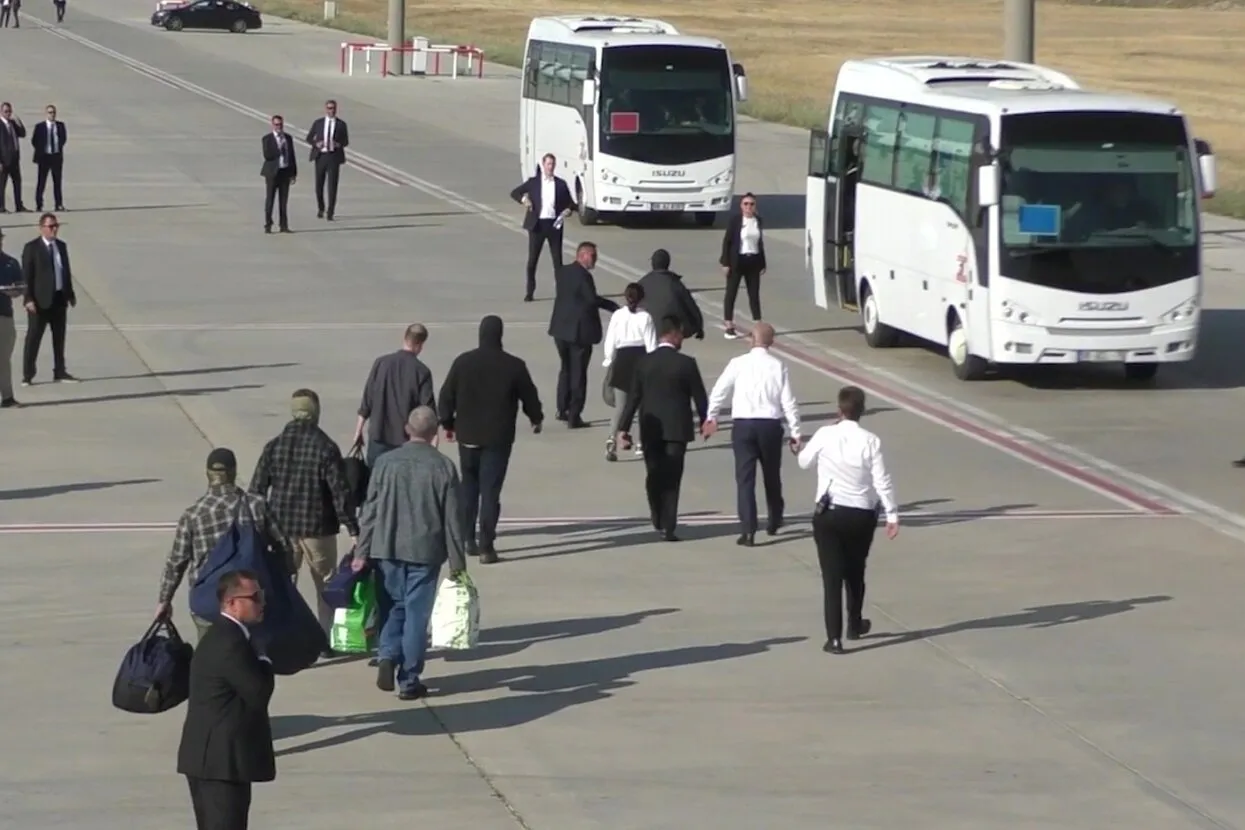
Russia traded seven of its citizens for hackers, spies, and an assassin. Will they ever be able to return home?
Thursday’s historic prisoner swap between Russia and multiple Western countries saw Moscow release eight of its own citizens. Judging by reports from their relatives, at least some of the freed prisoners were not informed about the swap until right before it happened. Now they’re both free from prison and exiled from their own country — but is this exile official? Meduza spoke to human rights lawyer Valeria Vetoshkina about the legal considerations that would come into play if the freed prisoners tried to return home.
Like it or not, events in Russia affect you, too. Meduza is here to keep you informed. Please support our work.
The prisoner exchange process is not formally regulated by any laws, according to Valeria Vetoshkina, a lawyer with the human rights organization OVD-Info. This is because it’s more of a diplomatic process than a legal one. Nonetheless, the procedure raises a number of legal questions with no obvious answer.
For example, it’s not clear what consequences a Russian citizen sent abroad as part of a prison exchange might face if they try to return to Russia — or whether they would be allowed back into the country at all. Under the Soviet government, dissidents were stripped of their citizenship and expelled from the country (Alexander Solzhenitsyn, for example, had his citizenship revoked after he was charged with treason). Afterwards, the authorities could ban the person from entering the country — and from a formal standpoint, it was all legal.
The Russian political prisoners included in Thursday’s exchange, on the other hand, have officially been pardoned for their “crimes”; the pardon orders were signed by Vladimir Putin earlier this week. What’s more, according to the Russian Constitution, Russian citizens cannot be deprived of their right to enter the country under any circumstances. Legally speaking, all of the Russian citizens who were released by the Russian authorities in Thursday’s prisoner swap can return to Russia. And the Russian government (again, legally speaking) currently has no official claims against them.
Nonetheless, Vetoshkina says, the Russian authorities could launch new criminal cases against the freed prisoners for other “offenses” at any time — specifically to discourage them from returning to Russia.
We also don’t know whether the Russian authorities demanded “confessions” from the prisoners before their pardons. Vetoshkina notes that according to the Russian Criminal Code, no admission of guilt is necessary for a convict to receive a pardon. But members of Russia’s Presidential Human Rights Council have said that in practice, security services often require it anyway.
The Russian authorities may have their own ideas about whether the freed prisoners have “pleaded guilty.” For example, in 2013, Kremlin spokesman Dmitry Peskov said that former oil tycoon Mikhail Khodorkovsky, who spent 10 years in prison on tax evasion and fraud charges before being pardoned by Vladimir Putin, had indirectly “admitted he was guilty” by asking the president for a pardon. Later, Putin himself made a similar claim:
In his letter to me, [Khodorkovsky] admitted [he was guilty] and asked me to release him before his sentence was over because his mother was sick, dying, and I went ahead and pardoned him. So that he could talk to his mother.
Khodorkovsky has denied Putin’s version of events: “I didn’t admit guilt — not directly and not indirectly. Vladimir Putin either truly doesn’t remember that I refused to be pardoned by confessing guilt, or he’s been misleading people.”
However, it appears unlikely that the political prisoners included in Thursday’s exchange were forced to “admit their guilt” or ask the president for a pardon. For example, we know from his wife that politician Andrey Pivovarov didn’t learn he was being exchanged until right before his flight.
The Kremlin hasn’t mentioned any admissions of guilt either. In a press release, the Russian authorities said the prisoners were exchanged “for the purpose of returning Russian citizens who were detained and imprisoned in foreign countries.”
Original analysis by Pyotr Sapozhnikov. Excerpt translated by Sam Breazeale.